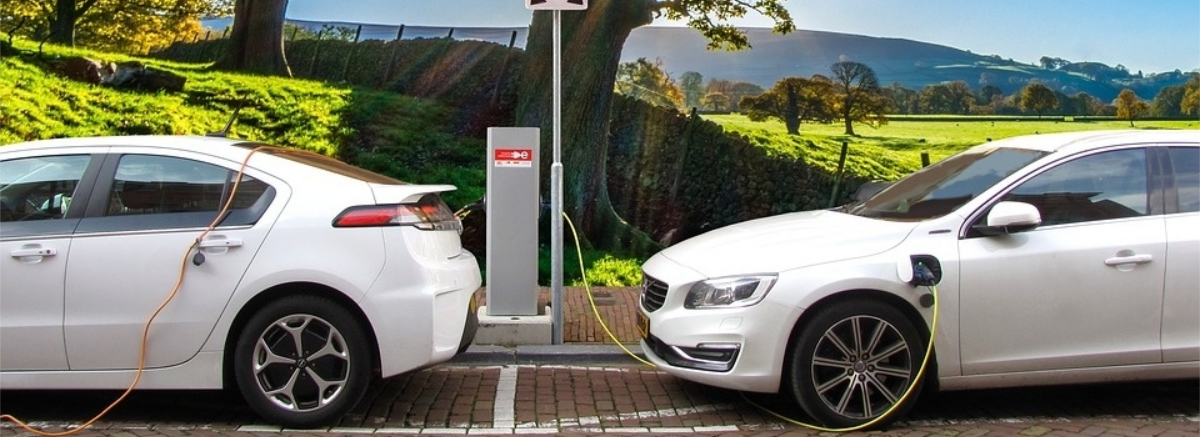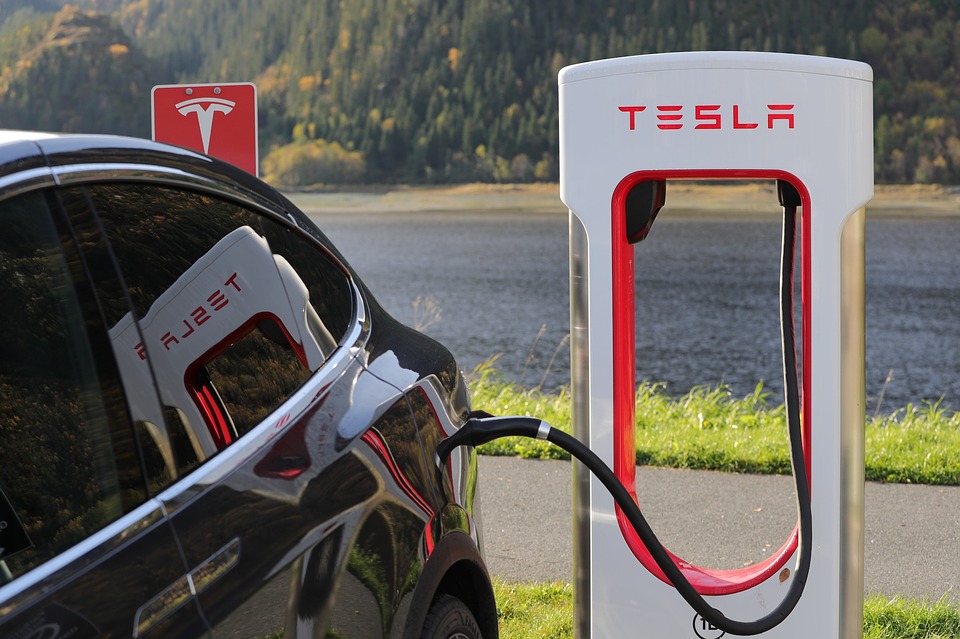The Evolution of Electric Cars
The Electric Car that we get to enjoy today, hails from the new age of energy conservation and emission reduction. Electric Cars are, however, nothing new. In fact, nearly a century ago, the first cars to be ever made were electric cars. In the late 1800s and early 1900s, nearly one-third of all the cars on the road were electric cars on US roads. 1575 of the 4192 cars on the road were electric cars.
Major US automakers were involved with electric cars in the early 1900s as electric car sales were leading in the market. Porsche’s first car, which is now a major international auto manufacturer, was in fact an electric car. Even Henry Ford, partnered with Thomas Edison himself to explore the potential of vehicles powered by electricity.
The First Fall of the Electric Car
As the 1900s progressed, electric cars started fizzling out as the internal combustion engine began taking off. The discovery of crude oil and how it could be harnessed to produce cheaper gasoline completely changed the market for the rest of the century. As the times progressed, roads all around the world, especially in the US developed into massive intra-city networks. Gasoline-powered vehicles could more easily travel farther and thus stumped the limited capabilities of the electric car.
The 1990s: A New Era Of The Electric Car?
Nearly a century later, the state of California is fighting for zero-emissions vehicle policies. Those policies ushered in the second wave of electric cars as the likes of General Motors were producing electric cars such as the EV1 for the general market.
The second wave of the electric car in the 1990s was, however, extremely short-lived as, by the end of the decade, auto-makers and oil companies had completely resisted the policies for sustainable energy sources and lobbied to weaken the policies altogether. The state of electric cars remained indefinite.
2003-Present: A New Era of the Electric Car Ushered by Tesla
The hiatus of the Electric was short-lived as in 2003, Tesla Motors was launched. The first electric car by Tesla, however, wasn’t launched until 2008. This was the Tesla Roadster.
Tesla has ushered in a new age of sustainable vehicles, backed by a market that is more interested in the environment and with the support of lawmakers as well who look to replace fossil fuels with renewable sources of energy. This trend of the general population’s interest in electric cars only seems to be growing and it seems other companies such as BMW, General Motors, and Ford, and following suit to the trend.
The Future of the Electric Car
The availability of electric cars to the general population has only helped grow this trend as, by the next few decades, countries such as the U.K., France, India, and China have pledged to stop sales of gasoline and diesel-powered vehicles as they look to sustainable living.
Experts suggest that by 2040, Electric Vehicles will account for 32% of global auto sales.
In 2017 alone, the electric car fleet in the world increased by a whopping 54% to about 3.1 million. Experts suggest that by 2030, 125 million electric cars will be on the road if the growth continues Government policies in the U.S are as of now, resistant to the shift to Electric Cars, preventing policies that make Electric cars attractive to the average driver which would encourage investment and nudge growth to a more accessible rate. If government policies weren’t as stringent, experts suggest 220 million electric cars on the road by 2030.
Europe and China will be the biggest markets for Electric Vehicles, as changing trends and existing policies predict. Changing subsidies and credits will help Electric Cars account for more than a quarter of the motor market by the next two decades. Meanwhile, in Europe, strict emission laws and high fuel taxes will boost the electric vehicle to almost a quarter of the market.
The United States as of yet stands divided on the issue. While places like California have seen massive growth in interest in electric cars, the current trend suggests slow growth in the rest of the country, especially under the Trump administration that taxes fuel companies the lowest and with their plans to scale back on emission policies.
China, on the other hand, is becoming a mammoth in the electric car industry with a whopping 72% growth in 2017 alone. Over a million electric cars are being driven on the roads of China, this is excluding the electric buses and two-wheeled vehicles, for which the country holds 99% of the world’s stock.
Countries such as Germany and Japan as well posted massive growth in electric vehicles in 2017, almost double what they had in 2016. Places such as the Netherlands, France, and China favor pure battery electric vehicles while Japan, Sweden, and the United Kingdom favor and have the highest share in plug-in hybrid cars.
Leading Corporations are following the growing trend of the demand and auto-manufacturer behemoths like Toyota, General Electric and BMW look to flood the market with electric vehicles. Toyota wants to sell 1 million electric cars by 2030, and BMW looks to launch 12 new Electric Vehicles in the next 8 years. Companies such as BMW and Toyota also look to work on the development of solid-state batteries for electric vehicles.
Final Thoughts
The world is adapting to electric vehicles as a way of life and nothing seems to be stopping electric vehicles from taking over the roads. Vehicles powered by gasoline don’t have much time or resources left in fact, as global reserves are depleting at a faster rate. The growth of electric cars is no longer a ‘want’, they’re a necessity if we’re to progress further. Depleting resources and polluting the environment is not a sustainable way of living anymore and the world is quickly looking to save what we have.
Thank you for taking some time to read this article. Feel free to leave your thoughts and comments in the section below.
Sources:
https://evannex.com/blogs/news/infographic-history-of-the-electric-car


6 Comments
Jimmy Dolo August 14, 2018 at 5:47 am
The rise of electric cars is truly not only a want but it’s a necessity because of the depletion of natural resources. We have two renewable resources, the water and solar energy. The question is, is the solar energy is as powerful as the fuel driven engines?
In the Philippines, we have one inventor who discovered how water can be used to drive a car but the government doesn’t support it so his invention is not being taken as an alternative technology.
So with the electric car, can the electric is as powerful as the fuel?
However, electric cars may be as powerful as the fuel driven or not our concern is our environment and you are in the right way in presenting this concern in this website. We are realizing the fact that our life is being threatened by our own doing as human being.
TGC-LTGW September 8, 2018 at 2:37 pm
Hi Jimmy,
Daily researches are looking into alternatives to create renewable energy. There is a lot: solar, wind, thermal, geothermal, biofuel, wave energy, hydroelectric and the list continues to grow every day.
It is so sad to hear that governments are not behind it but it’s not surprising. Fortunately, in this digital era, it is easy to connect to those who are interested in eco-friendly projects. Your inventor such reach out internationally to pitch his idea.
Everything is possible and electric cars can be as powerful as fuel, prototypes of race cars are already been created (race cars are the fastest cars). So if its possible to have an electric race car, the having an urban car seems very much possible.
In Norway, half of the cars in the country are electric or hybrid which is possible because of their strategic planning which includes providing incentives to those who chose to drive electric cars.
Simon August 14, 2018 at 2:10 pm
China seems to have exploded growth on the electric car sales recently, those are staggering figures.
I think what puts most people off purchasing electric cars including ourselves is the time it takes to recharge, the reason many people are choosing the hybrid versions, however, my guess is things are going to dramatically change over the coming years as I’ve heard there is a new design of car-battery that recharges as quick as it takes to refuel, this is revolutionary.
Where will the Governments recuperate the fuel tax, this will rock the boat,
Simon.
TGC-LTGW September 10, 2018 at 9:12 pm
Hi Simon,
In order for it to be successful I believe government intervention is needed but if governments are in favor of fossil fuels it will be really difficult to implement. There are improvements made with the batteries but we should also understand the technology behind it.
The government of Norway did a great job in implementing incentives that motivate citizens to buy electric cars and half of the population uses electric cars or hybrids already and they are expecting many more users.
Ian Froi August 17, 2018 at 10:08 pm
Great article. Electric cars as of this time are much more expensive than internal combustion cars. The challenge for the manufacturers like Tesla is how to make the price more affordable to the mass population. It is not easy but I think as the technology matures, the cost will eventually go down. Looking forward to my first electric car!
TGC-LTGW September 14, 2018 at 5:41 pm
Hi Ian,
That’s the spirit!
Thanks a lot for sharing your thoughts.